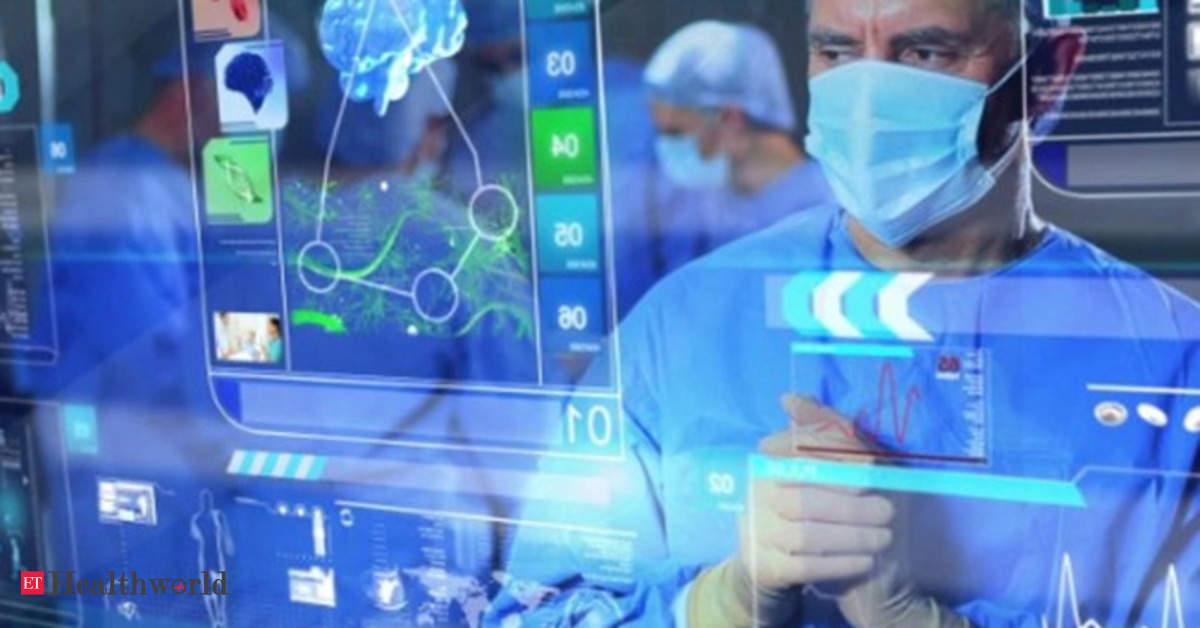Artificial Intelligence: Path-breaking revolution in Indian Healthcare… Leave a comment

 by Dr Varun Garg
by Dr Varun Garg
The use of Artificial intelligence (AI) is progressively increasing in business and society as a whole and is beginning to be applied to the healthcare sector as well. AI has the potential to transform multiple aspects of patient care, administrative processes, payments and pharmaceutical organizations.
There are several research studies suggesting that AI can perform equal to or even better than humans at key healthcare tasks, such as diagnosis avoiding some simple human errors. Presently, algorithms are already outperforming in radiology at detecting malignant tumours and helping researchers how to construct cohorts for costly clinical trials.
The complexity of the disease and disease management means there is a high chance that arti1cial intelligence (AI) will increasingly be applied in the field. Multiple AI is already being employed by the payees as well as the providers of care, and life sciences companies. The key categories of applications involve diagnosis and treatment planning, patient engagement and administrative purposes.
The future of AI in healthcare
AI has an important role to play in the healthcare sector in the coming future. In the form of machine learning, AI has the capability for the development of precision medicine, which is the future of advanced care. Although early efforts at providing diagnosis and treatment recommendations have proven challenging AI will ultimately master that domain as well. With the ongoing rapid advances in AI in the case of imaging analysis, it seems very acceptable that most radiology and pathology cases will be examined at some point by a machine. Speech and text recognition functions are already being employed for tasks like patient communication and penning down clinical notes, and their usage will increase in the coming future.
Now the greatest challenge that lies here is that AI is whether their adoption will happen in daily clinical practice or not. For a universal adoption to take place, AI systems need regulators’ approval, get well integrated with EHR systems, standardization to a level that certain similar products work similarly, taught to the old and upcoming clinicians, and paid for by public or private payer organizations and needs to be updated regularly over time in the field.
Some companies started this adoption with EHR services and provide doctors with cutting-edge solutions to digitize their clinic, from practice management software to building websites, branding, marketing and more. The main aim is to provide doctors with every necessary tool to take their practice to new heights.
How do AI benefits?
●Helping you turn data into action
Easy traceability, logistics, and infection control documentation allow you to avoid time-consuming manual controls, increase work efficiency, and focus on patient treatment. With collected and analyzed data, helps you make fact-based decisions based on accurate insights.
●Increased Revenue
The increased operational efficiency will reduce revenue leakages and stock pilferage, ultimately increasing revenue and easing your practice management.
●Improved Patient Experience
A comprehensive Patient Management Portal ensures that patient wait times are minimized and better care is provided. Joining Docplix will help you manage your appointments, enhance your reach, digitally store your patient records and help you practice at ease!
●Renovate Your Clinic with EASY to USE Clinic Management Software.
●Enhanced Security
The team should ensure extensive protection from security breaches, which includes protecting your PC, networks, programs and data from unauthorized or illegal access to your stored and recorded data.
●Simplify and Unify Your Simulation WorkRows
One Solution for All Your Simulation Management Needs. Manage clinical rotations, map competency-based curricula, and track EPAs to meet accreditation requirements and train highly skilled practitioners.
Although it seems quite clear that AI systems will not completely replace human clinicians on a large scale, but rather will augment their efforts to provide care for patients. Over time, human clinicians and professionals may move toward tasks and job designs that draw on uniquely human skills like empathy, conviction and big-picture integration. Perhaps the truth of the future is only healthcare providers who will lose their jobs over time may be the ones who refuse to work alongside arti1cial intelligence.
Dr Varun Garg, CEO, DocPlix
(DISCLAIMER: The views expressed are solely of the author and ETHealthworld does not neccesarily subscribe to it. ETHealthworld.com shall not be responsible for any damage caused to any person / organisation direclty or indirectly)


